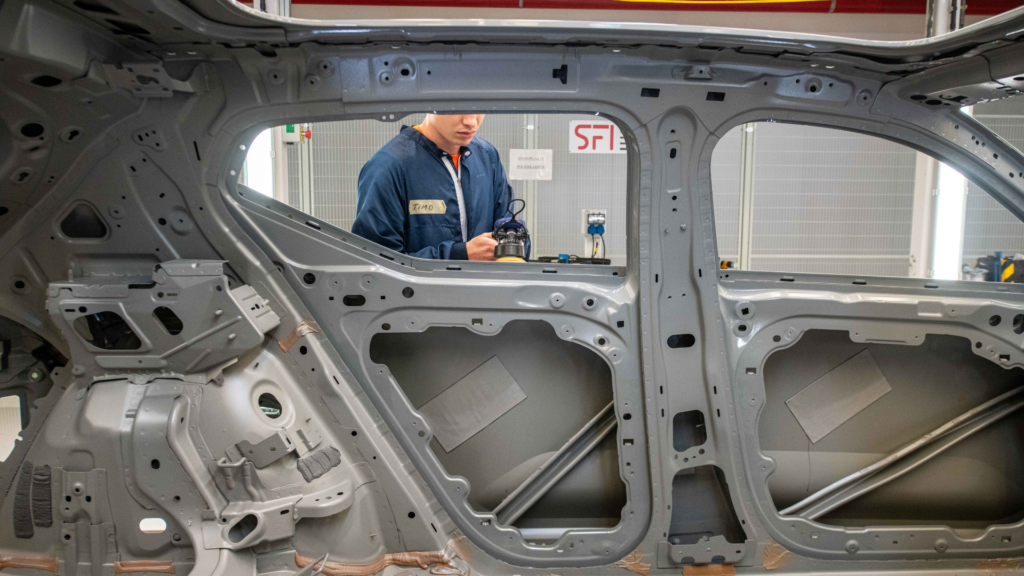Swedish automotive group Volvo Cars anticipates "stronger headwinds" in 2025 due to import tariffs on Chinese Electric Vehicles (EVs) than in 2024, according to CFO Johan Ekdahl on Thursday.
The exact cost of these tariffs, which the automaker does not plan to fully pass on to the customer, has not been disclosed.
Last year, the European Union imposed import tariffs on Chinese EVs to protect the market from dumping. This move has faced criticism from some automotive associations, which believe that the tariffs fly in face of the EU's electrification plans. Others believe the move is necessary to protect the competitiveness of Europe's automotive sector.
Volvo’s electric EX30, made in China, is popular in Europe and is set to be impacted by the tariffs. In 2023, in a bid to localise production, Volvo decided that the EX30 would also be manufactured in Ghent, Belgium.
However, starting production takes time, and the first EX30 has not yet been assembled in Ghent. As a result, Volvo is paying import tariffs on every EX30 sold in mainland Europe. “The cost was relatively limited in 2024,” Ekdahl said, “but we started the period of import tariffs with a certain stock and inventory.”
He added that the cost will increase, especially in the first half of 2025, until full production speed is reached in Ghent. “There will be stronger headwinds than in 2024, but for the entire group, it is not a huge sum.”
Despite this, the Ghent factory has been working intensively for months to prepare for EX30 production in Europe. The official start of the manufacturing line is expected in a few weeks, and the factory is set to build the model on a large scale. The EX30 will be crucial for the Ghent factory, especially as Audi Brussels prepares to close, leaving it as the last car manufacturer in Belgium.
Related News
- Tesla sales down nearly 60% in Germany
- Nearly 80,000 unsold Chinese electric cars sitting in European ports
As the smallest and relatively affordable electric vehicle in Volvo’s range, the EX30 plays a vital role in the company’s electrification strategy. Producing the EX30 in Ghent could help secure jobs and investments in the Belgian factory. The move also allows Volvo to be less dependent on Chinese production, providing better protection against geopolitical and economic uncertainties, such as trade tariffs and import restrictions.
Volvo Car Ghent is one of the most important industrial employers in Flanders, employing around 6,400 people. In the coming months, hundreds more workers will be hired to build the EX30, with subcontractors also announcing significant hiring waves in recent months.
Volvo, owned by Chinese automotive group Geely, announced on Thursday that its revenues increased to just over €35 billion last year, with car sales hitting a new record of 763,389 units, of which nearly a quarter were electric models. 46% of the company's vehicle sales were for electric and hybrid models.
The automaker's operating profit amounted to around €2 billion in 2024 and its net profit increased by 13% compared to 2023, rising to around €1.4 billion.

